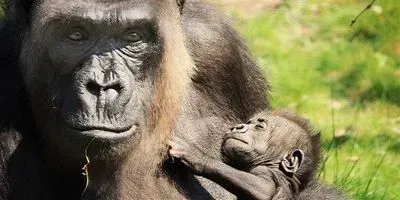 FLICKR, JINTERWASHuman mothers tend to cradle their babies on their left sides, and recent studies suggest children prefer to approach their mothers from the right. But now, a January 9 study in Nature Ecology & Evolution has demonstrated that other mammalian species exhibit similar behavior. After studying 11 mammal species—including oxen, reindeer, antelope, horses, walruses, sheep, whales, and kangaroos—the scientists concluded that infants generally position themselves to the right of their mothers despite their mothers’ preference for positioning them to the left, especially in times of crisis.
FLICKR, JINTERWASHuman mothers tend to cradle their babies on their left sides, and recent studies suggest children prefer to approach their mothers from the right. But now, a January 9 study in Nature Ecology & Evolution has demonstrated that other mammalian species exhibit similar behavior. After studying 11 mammal species—including oxen, reindeer, antelope, horses, walruses, sheep, whales, and kangaroos—the scientists concluded that infants generally position themselves to the right of their mothers despite their mothers’ preference for positioning them to the left, especially in times of crisis.
“Infants keep their mother on their left in normal situations such as moving forward or suckling,” coauthor Janeane Ingram of the University of Tasmania told New Scientist. “But when faced with stressful situations such as when fleeing, mothers prefer their infant on their left side so they can better monitor them.”
Ingram and colleagues observed as infants from each species approached their mothers from behind, and recorded almost 11,000 encounters. The researchers found that infants approached from their mothers’ right sides roughly 75 percent of the time. But they also found that mothers generally kept their infants on their left sides during normal activities, and especially when the mothers sensed danger.
The findings may be related to how animals process information with their right versus ...






















